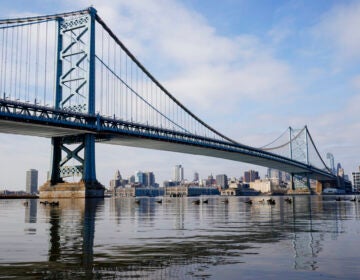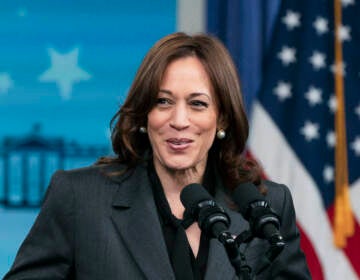Wal-Mart, NY church square off in Philly court over retailer’s gun sales policy
When a retail giant faces off against an iconic New York church in a Philadelphia court this week, a case that began with concerns about the sales of assault weapons could end up setting an important precedent about corporate governance.
Trinity Episcopal Church, most famous for its location right next to Ground Zero in Manhattan, will meet Wal-Mart Stores Inc. in a federal appeals court Wednesday. Trinity holds shares of Wal-Mart stock, and church leaders are hoping to win a court ruling that will allow all shareholders to vote on a proposal that would require Wal-Mart’s board of directors to set formal policies for the sale of assault rifles and other dangerous products in more than 4,000 stores.
Wal-Mart has been fighting to prevent that shareholder vote from happening, saying it would represent undue interference in the company’s day-to-day business operations.
Professor Adam Cobb of the Wharton School of Business says the case could set a powerful precedent, no matter who prevails.
“Whether the court comes down on the side of Wal-Mart or the side of Trinity is actually a pretty big deal for the state of corporate governance,” Cobb said. “Who has the power here? Does just management have unilateral power, or do shareholders grab some of that power back?”
Trinity Church officials say they don’t want to stop gun sales; they just want Wal-Mart’s board to be formally accountable for, and fully involved in, decisions over the sales of any dangerous product.
“This is a governance proposal. We’re not saying anyone should tell Wal-Mart what to sell or what not to sell … [or] that shareholders should vote on whether or not to sell high powered assault rifles,” said Dawn Dover, a Trinity spokeswoman. “We’re saying, there should be a policy by which the board votes on dangerous products. It should set the policies for how management makes these decisions.”
But Wal-Mart officials say those decisions should be left to store management, and they believe the law is on their side.
Cobb said that even if Trinity prevails in court, its proposal would be unlikely to win shareholder approval, given the founding Walton family’s controlling interest in the company stock.
Likewise, a Wal-Mart spokesman said that the company has no fear that a ruling for Trinity would have any impact on the retailer’s core mission of offering products at low prices.
But the company does believe that a win for Trinity could have a negative impact on the entire retail industry. Cobb isn’t sure about that, but he thinks the Trinity case could clarify the rights of stockholders in all sorts of enterprises, potentially opening doors to a range of shareholder activism.
“The court decision should help determine just how much latitude shareholders have to bring forth resolutions that might at least have some influence on the types of products, the types of services a business offers,” Cobb said.
A district court recently ruled in Trinity’s favor; a ruling from the appeals court is expected within weeks. If the district court’s ruling is upheld, Wal-Mart shareholders could vote on the matter as soon as this summer.
WHYY is your source for fact-based, in-depth journalism and information. As a nonprofit organization, we rely on financial support from readers like you. Please give today.




